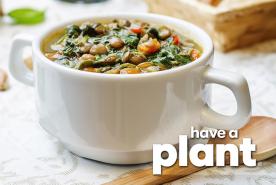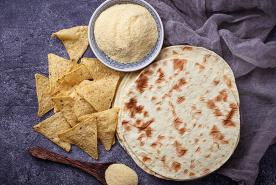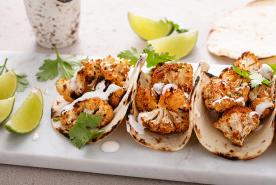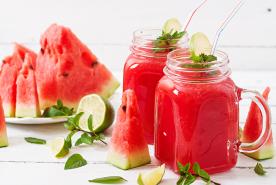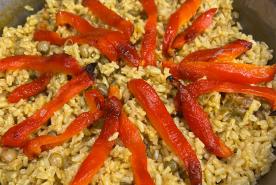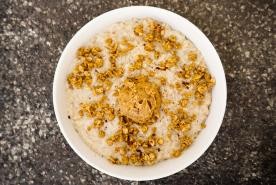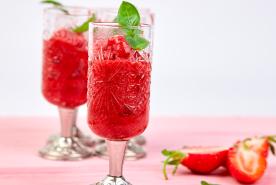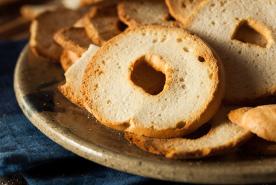August 07, 2025
Wondering what to eat if you have gout? This guide breaks down the top foods that lower uric acid and what to avoid to feel better.
What is Gout?
Gout is a form of arthritis caused by high levels of uric acid in the blood. High uric acid levels can cause sharp crystals to form in the joints, causing sudden pain and swelling. Diet plays a significant role in managing gout and preventing flare-ups. It can also help protect your kidneys, which filter uric acid from the blood.
Gout Causes: Purines and Uric Acid
Purines are natural substances found in every cell of the body and many foods. They help build DNA and support energy production.
When the body breaks down purines, it forms uric acid as a byproduct.
Usually, uric acid dissolves in the blood, passes through the kidneys, and leaves through urine. If the body makes too much uric acid, or the kidneys can’t get rid of it, uric acid can build up in the blood.
If uric acid levels stay too high for too long, sharp crystals can form in joints and tissues. That’s what causes gout, a painful type of arthritis.
Symptoms of sudden gout attacks include:
- Swelling
- Redness
- Pain or extreme tenderness in the toes, ankles, wrists, and fingers
Uric acid buildup can also lead to kidney stones or worsen kidney issues. In fact, gout and kidney disease are closely linked: Up to 4 in 10 people with gout also have kidney disease.
Treating Gout
Gout treatment often includes medications to lower uric acid levels and reduce inflammation during flare-ups. Diet changes are also an important part of preventing gout and keeping the kidneys healthy.
“I can feel when food triggers a gout attack almost immediately,” said Tzianeng Vang, a patient living with gout. “It is like when you turn on a water heater and you hear the hiss through pipes. I feel a sudden warmth heat up my joints.”
Here are the top 5 best and worst foods for gout management.
Subscribe today!
Join the NKF Blog Newsletter
Get inspirational stories and kidney disease resources delivered to your inbox every month. You'll gain practical insights and expert advice to help you better understand and manage your kidney health, no matter where you are on your kidney journey.
1. Low-Fat Dairy Products
A study in the Journal of Dairy Science found that drinking or eating more low-fat dairy and yogurt may help lower uric acid levels, reducing gout flares.
Dairy also contains certain amino acids that may support the body’s ability to process and remove uric acid. Because milk is rich in these amino acids, it may play a helpful role in managing gout.
- Choose: Low-fat or nonfat milk, plain yogurt, and kefir
- Avoid: Full-fat dairy or sweetened dairy products, which can add extra saturated fat or sugar
Learn about dairy and kidney disease.
2. Fruits and Vegetables
Eating more fruit, especially cherries, berries, and citrus fruits, may help reduce the risk of gout flares. This study found that cherries, in particular, have anti-inflammatory and antioxidant properties that can lower uric acid levels and prevent flare-ups.
While many vegetables are high in purines, studies have shown that consuming them does not increase the risk of gout.
- Choose: Fresh fruits and vegetables
- Avoid: Fruit juice and sugary fruit cups
*Many fruits and vegetables are high in potassium. If you have kidney disease with potassium limitations, speak with a kidney dietitian about which fruits and vegetables to add to your diet.
3. Whole Grains
A 2025 study in Arthritis Care & Research found that eating at least one serving of whole grain cold cereal, cooked oatmeal, or oat bran significantly lowered people’s risk of gout.
That’s because whole grains are lower in purines and help regulate blood sugar. Managing blood sugar is especially important for people who have both gout and conditions like diabetes or insulin resistance.
- Choose: Oatmeal, whole grain bread, brown rice, quinoa, bulgur, oat bran
- Avoid: Refined grains like white bread, white rice, and sugary breakfast cereals, which can spike blood sugar and lack fiber
Learn more about whole grains.
4. Legumes and Plant-Based Proteins
Lentils, beans, tofu, and chickpeas are excellent sources of protein for people with gout. They are rich in fiber, antioxidants, and plant compounds that may help reduce inflammation and support kidney health.
While these foods contain moderate levels of purines, plant-based proteins do not raise the risk of gout the way red and organ meat does.
- Choose: Lentils, black beans, chickpeas, edamame, tofu, and tempeh
- Avoid: Eating too much red meat, poultry skin, or processed plant-based meats high in sodium and additives
Learn more about plant-based diets.
5. Water and Unsweetened Drinks
Staying hydrated is one of the best and easiest ways to help manage gout. It helps kidneys flush out excess uric acid, lowering the chances of crystal buildup in the joints.
- Choose: Water and fruit-infused water
- Avoid: Sugary drinks like soda, sweetened teas, energy drinks, and fruit juices high in fructose
Unsweetened drinks, decaffeinated herbal teas, and black coffee (in moderation) can also be good choices.
*Since many herbal teas interfere with medications, ask your healthcare team which teas are safe to drink. People with end-stage kidney disease may also need to limit fluid intake. Ask your healthcare team what healthy hydration looks like for you.
1. Red Meat and Organ Meats
Beef, pork, lamb, and organ meats, like liver, kidneys, and sweetbreads, are very high in purines. Eating large amounts of these foods can raise uric acid levels and increase the risk of gout attacks.
- Avoid: Liver, kidney, sweetbreads, and large portions of red meat
- Choose: Plant-based proteins, chicken (in moderation), or tofu
2. Seafood
While fish can be a healthy addition to other diets, these options are best limited for people with gout. Seafood, especially anchovies, sardines, mackerel, scallops, and shellfish, is high in purines and has been linked to gout flares.
- Avoid: Anchovies, sardines, shellfish, mackerel, and herring
- Choose: Salmon (in moderation)
3. Sugary Drinks and Sweets
Drinks like soda, sweetened iced tea, energy drinks, and sugary juices are high in fructose. Fructose is a type of sugar that increases uric acid production in the liver.
Many of these drinks provide little nutritional value and can also contribute to obesity, another gout risk factor.
- Avoid: Soda, sports drinks, energy drinks, and fruit juices with added sugar
- Choose: Water, lemon water, or herbal tea
4. Alcohol, Especially Beer
Studies show that alcohol, especially beer, is a trigger for gout attacks. Alcohol interrupts the body’s ability to get rid of uric acid, and beer contains purines that can raise uric acid levels.
- Avoid: Beer, liquor, and frequent or heavy alcohol consumption
- Choose: Alcohol-free drinks, like mocktails, or wine (in moderation)
Learn more about alcohol and kidney disease.
5. Highly Processed Foods
Processed foods high in sodium and trans fats can increase stress and inflammation in the kidneys. While highly processed foods may not directly cause uric acid buildup, they can worsen other health conditions that contribute to kidney issues or gout.
- Avoid: Fast food, packaged snacks, frozen dinners, and anything high in sodium, fat, or added sugar
- Choose: Fresh or minimally processed meals made at home with whole ingredients
Find the Perfect Recipe
View our kidney superfoods or get more kidney-friendly recipes.
*This information is for educational use only and not a substitute for medical or dietary advice. Consult your healthcare provider or dietitian for personalized guidance.












